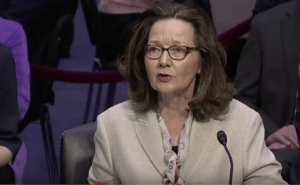The Congressional Push for Secrecy
The U.S. Congress -- one of the branches intended by America’s founders to balance the president’s power -- is showing just as much and in some cases more interest in preserving a growing culture of secrecy as its executive counterpart, says Steven Aftergood, secrecy researcher at the Federation of American Scientists.
The U.S. Congress — one of the branches intended by America’s founders to balance the president’s power — is showing just as much and in some cases more interest in preserving a growing culture of secrecy as its executive counterpart, says Steven Aftergood, secrecy researcher at the Federation of American Scientists.
Lawmakers have recently made bulk declassification impossible; sought to repeal rules that enable the public to estimate the size of the national security bureaucracy; and struck down proposals to require disclosures of the slightest details of the government’s intelligence gathering methods.
“Overall,” Aftergood writes, “the strange congressional propensity for executive branch secrecy presents a conundrum and a challenge to advocates of greater openness and accountability. It is probably unrealistic to expect executive agency officials to take significant steps to provide greater public disclosure of national security information if a majority in Congress is on record opposing such steps.”
Read about a few blocked provisions to the FISA Amendments Act — the law governing the warrantless surveillance of American citizens — below.
— Posted by Alexander Reed Kelly.
Your support is crucial…Steven Aftergood at Secrecy News:
It is a simple fact that under the FISA Amendments Act “the government can and does intercept the communications of U.S. citizens, even in the absence of any particularized warrant or showing of probable cause,” stated the dissenting members of the Committee in the new report.
“The public has a right to know, at least in general terms, how often [this authority] is invoked, what kind of information the government collects using this authority, and how the government limits the impact of these programs on American citizens,” the minority members wrote. But an amendment to require unclassified public reporting on these topics, offered by Rep. Bobby Scott (D-VA), was defeated 10-19.
Another amendment introduced by Rep. Jerrold Nadler (D-NY) would have required publication of unclassified summaries of decisions of the Foreign Intelligence Surveillance Court that have interpreted the law in significant ways. “This amendment aimed only to make the legal reasoning of the FISA Court available to the public. It also sought to ensure that the United States should not have a secret body of law.” It was rejected by a vote of 13-17.
A third amendment would have required the Inspectors General of the intelligence community and the Justice Department to produce a public estimate of how many Americans have already had their communications collected under this law. The amendment, by Rep. Sheila Jackson Lee (D-TX), failed by a vote of 11-20.
With an uncertain future and a new administration casting doubt on press freedoms, the danger is clear: The truth is at risk.
Now is the time to give. Your tax-deductible support allows us to dig deeper, delivering fearless investigative reporting and analysis that exposes what’s really happening — without compromise.
Stand with our courageous journalists. Donate today to protect a free press, uphold democracy and unearth untold stories.









You need to be a supporter to comment.
There are currently no responses to this article.
Be the first to respond.